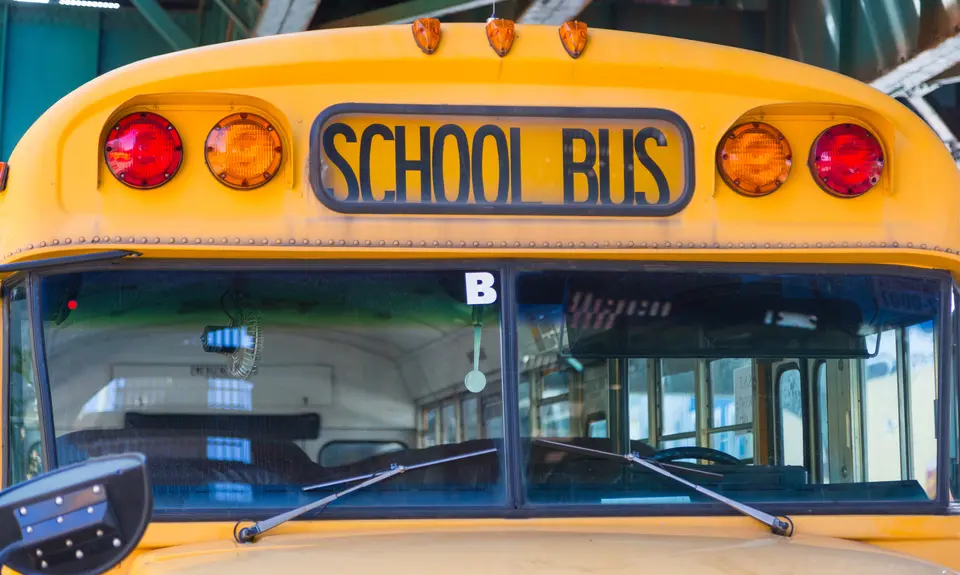“Our Courts, Our Fight” is a blog series documenting the harmful impact of President Trump’s judges on Americans’ rights and liberties and the need for the Senate to confirm President Biden’s federal court nominees to help counteract these effects . Supreme and appellate court cases in the series can be found by issue and by judge at this link.
Trump Fifth Circuit judge Cory Wilson, joined by Trump judge Andrew Oldham and a George W Bush nominee, stayed a decision by a district judge nominated by Bush and reinstated a ban by Texas governor Greg Abbott on public school mask mandates due to COVID-19, despite the increased risk to children with disabilities. The December 2021 decision was in E.T. v. Paxton.
In July 2021, Abbott issued an executive order that forbade all government entities, including school districts, from requiring the wearing of masks to help address the serious risk of COVID-19 infection. The parents of seven young children, who suffer from ailments such as asthma and other airway diseases, cerebral palsy, and immune deficiency, sued Abbott, contending that the order violated the Americans with Disabilities Act (ADA) and other federal laws. As explained in their complaint, if school districts cannot require masks as they deem necessary due to health conditions, then “parents of medically vulnerable students will have to decide whether to keep their children at home or risk "placing them in an environment that presents a serious risk to their health and safety.” In fact, several large Texas school districts issued mask mandates despite the order as the Delta variant caused increased cases and hospitalizations due to COVID-19, including among children. Abbott filed a number of state court lawsuits against such districts to enforce compliance.
Federal district judge Lee Yeakal, who was nominated by President George W Bush, held a trial in October and issued a decision in November that permanently blocked Abbott’s order, allowing school districts to decide their own mask policies based on local conditions. Yeakal concluded that because of the higher risk of infection to disabled students if they attend schools where masks cannot be mandated, they “are being denied the benefits of in-person learning on an equal basis as their peers without disabilities.”
On appeal, Trump judge Wilson, joined by Trump judge Oldham and Jennifer Elrod, blocked the district court decision, and reinstated the Abbott order as they further consider the case, strongly indicating that they will dismiss the case. Wilson suggested that the students and their parents had not “stated any injury-in-fact sufficient to confer standing” to sue or that Abbott’s order and its enforcement “result in any cognizable deprivation” of their “access to in-person public education.” This was because, Wilson maintained, students with disabilities were not necessarily suffering from COVID-19 where masks are not required and “[o]ther means exist to control spread of Covid-19 in school settings,” such as “vaccination, social distancing, plexiglass, and voluntary mask wearing.” Wilson also claimed that the parents had not sufficiently exhausted their administrative remedies with Texas before filing suit.
Judge Yeakal, however, had already responded to these arguments, which had been raised by the state. According to case law, Yeakal explained, the disabled children need not show that they are definitely suffering from COVID-19 if they attend school without mask requirements, but instead that they are being deprived of “reasonable access to in-person public school” in districts that decide, based on local conditions, that mask-wearing is necessary to ensure such access for disabled students. Even if individuals are not “wholly precluded” from a program or service, Yeakal contined, precedent establishes that such individuals are being denied their legal rights if they are “at risk of serious injuries” when they seek to use it without necessary accommodations. This is a particular problem in the Texas public school setting, Yeakal noted, because of the “surge” in COVID-19 cases among children because of the “resumption of in-person schooling and the emergence of the Delta variant,” which evidence has shown “causes more serious illness and fatality rates.” As for administrative exhaustion, Yeakal explained that according to Supreme Court precedent, such exhaustion is “not required” when plaintiffs are not seeking an Individualized Education Plan under the ADA.
The case brought by students with disabilities and their parents in Texas is not yet over. Disability Rights Texas, which represents the parents and students, issued a statement expressing both disappointment and determination to proceed because as “new COVID variants threaten,” it is “imperative” that schools “have the option of requiring masks” to “protect vulnerable students.” Regardless of the ultimate outcome, this decision is yet another example of the importance, as part of our fight for our courts, of the Senate confirming fair-minded judges who will fully enforce the laws that can “protect vulnerable students” in all our schools.
